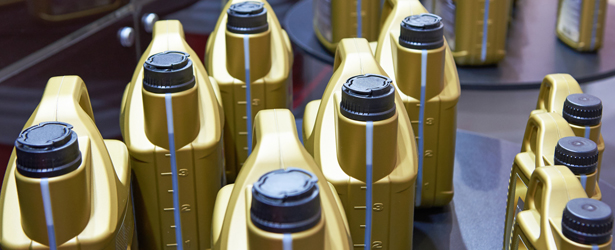The latest edition of Kline & Company’s Global Synthetic Lubricants Report reveals that the growing synthetic lubricants market is attracting attention from an unexpected newcomer.
Report Manager David Tsui explains why current industry players should be concerned about the growing number of premium private label (PPL) branded products that are coming into the market.
In the 40 million tonne global finished lubricants market, Shell has held the number one supplier position for 12 consecutive years. And the latest edition of our biennial Global Synthetic Lubricants Report reveals that the organization has now edged out close rival ExxonMobil to also claim the top spot in the global synthetic/semi-synthetic lubricants market.
In 2017, the top 3 suppliers of synthetics and semi-synthetics accounted for 40% of total volume
However, things are changing and, looking ahead, these well-established market players need to not only look at the activity of their conventional competitors which include Total and Chevron but also look out to the sidelines. Why? Because a new threat may be growing from PPL products offered by global retailing giants.
Room for growth in synthetics
In a relatively flat global finished lubricants market, we see the synthetic lubricant segment continuing to grow, with Asia-Pacific and North America leading the way. This growth is predominantly being driven by the increased use of higher performance, lower viscosity grade lubricants in passenger car applications.
With the broader introduction of API CK-4 quality oils (and even some acceptance of API FA-4) to meet tightening emissions regulations, there is also room for growth in the heavy-duty sector. However, despite the attractiveness of higher performing fluids that can deliver fuel economy savings, the uptake of synthetics is likely to be slower than in the passenger car world in such a price-sensitive sector.
Considering the potential, it is hardly surprising that every supplier, distributor, and toll blender is making a move to offer its own private label synthetic oil.
Amazon launches own brand oil
In July 2018, retail giant Amazon added its first private label motor oil products to its growing
AmazonBasics brand, which the organization says offers quality and value on everyday products. Its new full synthetic motor oils are formulated to various SAE viscosity grades and are priced competitively. Amazon says its full synthetic SAE 0W-20 product, for example, is formulated for longer drain intervals and is a step up from synthetic blends.
Clearly, such statements are going to attract consumer attention and, in response, the Petroleum Quality Institute of America (PQIA) has tested the SAE 0W-20 full synthetic AmazonBasics oil. PQIA says the results of tests conducted on the samples met the SAE J300 specifications for the SAE viscosity grade listed on the product label and were consistent with the listed API Service Categories.
Where Amazon may have the edge in this market is the power of its brand, which may help its lubricant offerings catch on quickly.
The Report
Kline’s Global Synthetics Lubricants Report, published in September 2018, focuses on growth in the consumer, commercial, and industrial sectors; examines the key drivers in these markets; and explores the evolving competitive landscape. Covering Africa, Asia-Pacific, the Middle East, Europe, and North America and profiling 15 countries including China, Germany, and the United States, the report identifies leading regional markets.
The Global Synthetic Lubricants Report pinpoints areas where future opportunities and challenges for base stock suppliers, lubricant blenders, and marketers may be found.

